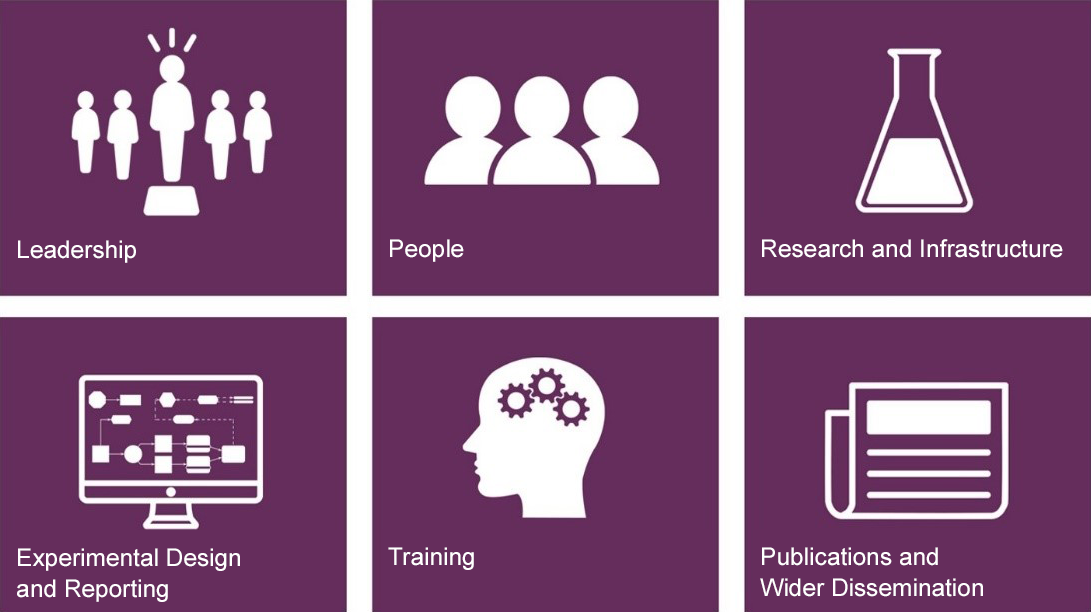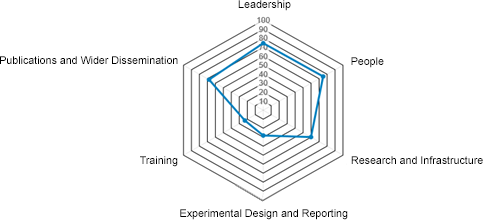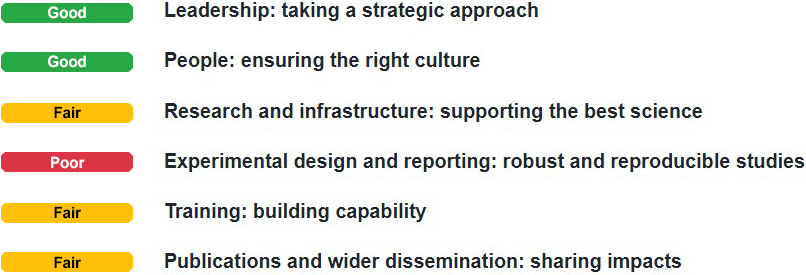Interactive 3Rs self-assessment tools launched
The NC3Rs has launched two online 3Rs self-assessment tools that research groups and institutions can use to collate, track and benchmark their 3Rs activities.
UPDATE: The NC3Rs self-assessment tools are currently under redevelopment (2024), for more information on this project please see our resource page: 3Rs self-assessment tools.
These interactive tools, which are secure and free-to-use internationally, help researchers, ethics committee members and others to identify and implement 3Rs opportunities.
Leaders of research groups and institutions who want to ensure an optimal 3Rs culture need to be able to evaluate their current activities, understand their strengths and establish what should be improved and how. Through consultation with the scientific community, we have developed two 3Rs self-assessment tools: one for individual research groups and one for research institutions (i.e. universities and other academic, research-intensive organisations). Each tool consists of a series of questions on the 3Rs, divided into categories that reflect the breadth of potential 3Rs activities across different levels. Once each question set is completed, the system automatically scores the responses and provides bespoke feedback on what is being done well and what improvements the research group or institution could make.

Why should you use the 3Rs self-assessment tools?
There are a number of benefits to using the tools:
- Focus your efforts: you can use your scores internally to allocate resources and concentrate discussions on the most important 3Rs areas, at research group meetings or within your local ethics committee/animal welfare body.
- Track your progress: the self-assessment process can be repeated, and multiple scores logged over time, allowing you to see how your 3Rs culture has developed.
- Find out what has worked before: as well as advice and suggestions for improvement, the feedback provides you with examples of successful initiatives from other institutions.
- Demonstrate your commitment to the 3Rs: you may wish to share your scores externally – for example, in grant proposals and applications for approval to use animals, or as part of discussions with regulatory bodies or the public.
- Convert policy into practice: the tools offer a clear and comprehensive method for assessing your 3Rs activities in relation to best practice, helping you ensure your group or institution’s 3Rs policy is reflected in your actions.


Scores and feedback provided within the 3Rs self-assessment tools are confidential and can only be accessed by the approved lead-user for the research group or institution (the NC3Rs does not have access to individual scores or assessment information submitted by users). Any information provided is held securely and anonymised. All lead-users of the Research Institution Tool go through an approval process to ensure they have an appropriate level of seniority, after which they can nominate sub-users to help answer questions.
To start using the tools to assess and strengthen the 3Rs culture within your research group or institution, visit 3rsselfassessment.nc3rs.org.uk and register using your institutional email address.
As well as guidance and tutorials available on the self-assessment tool website, a recording of our introductory webinar (originally held on Wednesday 28 July) is available to watch online and support anyone interested in using the tools to get started.
